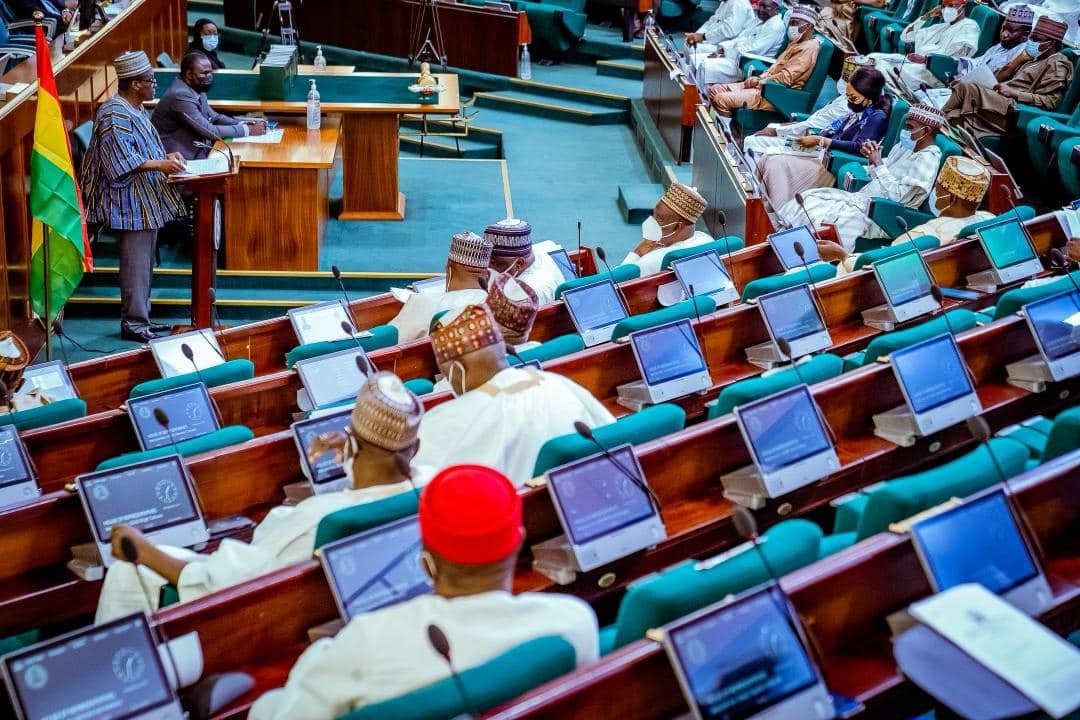[ad_1]
The House of Representatives commenced the amendment of the Medical and Dental Practitioners Act to stop the migration of Nigerian-trained medical practitioners.
The amendment, sponsored by Ganiyu Johnson (APC, Lagos), is proposing that Nigerian-trained medical doctors must serve in the country for five years before they are given a full practising licence.
During the debate on the general principle of the bill on Thursday, Mr Johnson said it was only fair for medical practitioners, who enjoyed taxpayer subsidies on their training, to “give back to the society.”
Uzoma Abonta (PDP, Abia) spoke against the bill, saying it would infringe on the rights of doctors to move freely.
Mark Gbillah (LP, Benue) also spoke against the bill and called for better framing of the legislation.
“I want to suggest that we look at how to rework this bill in itself because as a professional myself I do not think you should be able to practice anything without your licence.
“A person in such a critical field as medicine, how would you give somebody a temporary licence or what would that imply? You would need a licence to be certified to practice. So the issue we are trying to cure is brain drain and that in itself, in my opinion…
“Do we try to restrict these people and infringe on their fundamental human right or apportion more resources to the medical profession,” he said.
Before putting the bill to question, the Speaker of the House, Femi Gbajabiamila said the proposed bill was not infringing on the rights of medical practitioners because section 45 of the 1999 Constitution allows the government to suspend certain rights due to certain conditions.
“Let me clear the issue of fundamental human rights that has been raised.
“If you go to section 45(1) of the Constitution, it actually allows you to deviate from your fundamental human rights under certain conditions.
“One of these conditions concerns public health. So if the government feels that to safeguard public health this restriction should be put then we have not violated anybody’s human rights,” he said.
Members passed the bill for second reading when it was put to vote by Mr Gbajabiamila.
Exodus
Despite the shortage of medical personnel in the country, Nigeria continues to experience a mass exodus of healthcare professionals, especially doctors, pharmacists, and nurses.
READ ALSO: Brain Drain: Nigeria needs 363,000 doctors but has only 24,000
A 2017 survey by the Nigerian Polling Organisation (NOIPolls) in partnership with Nigeria Health Watch, revealed that about 88 per cent of medical doctors in Nigeria were seeking work opportunities abroad at the time.
Last year, the Medical and Dental Consultants Association of Nigeria (MDCAN) said more than 100 of its members left the country within 24 months.
Similarly, in 2018, the National Association of Resident Doctors (NARD) said at least 12 colleagues leave Nigeria every week to practice medicine overseas.
A 2022 UK immigration report also showed that 13,609 Nigerian healthcare workers (including doctors) were granted working visas in the past year, making the country second only to the 42,966 from India.
Support PREMIUM TIMES’ journalism of integrity and credibility
Good journalism costs a lot of money. Yet only good journalism can ensure the possibility of a good society, an accountable democracy, and a transparent government.
For continued free access to the best investigative journalism in the country we ask you to consider making a modest support to this noble endeavour.
By contributing to PREMIUM TIMES, you are helping to sustain a journalism of relevance and ensuring it remains free and available to all.
Donate
TEXT AD: Call Willie – +2348098788999
[ad_2]
Source link







